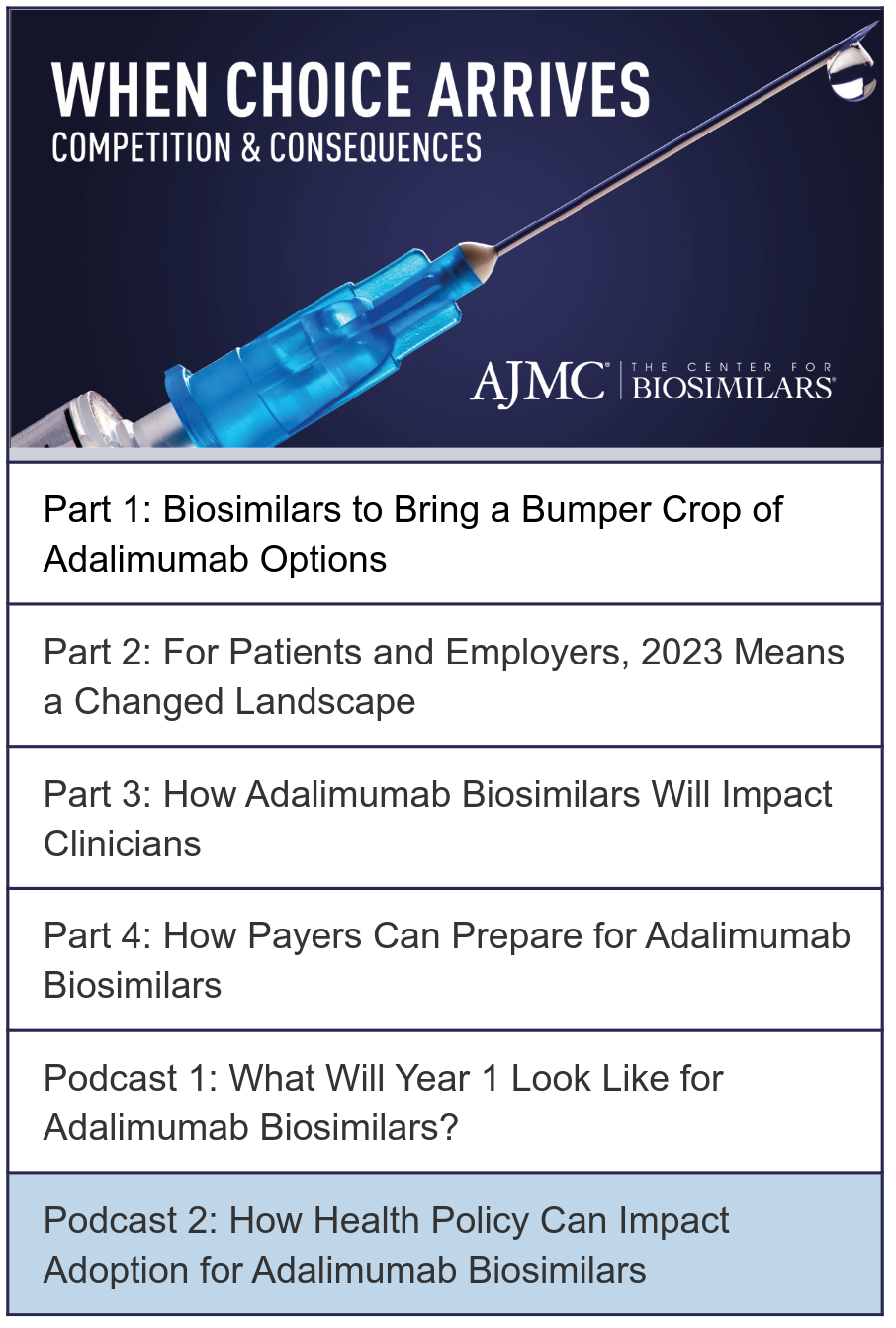- Bone Health
- Immunology
- Hematology
- Respiratory
- Dermatology
- Diabetes
- Gastroenterology
- Neurology
- Oncology
- Ophthalmology
- Rare Disease
- Rheumatology
How Health Policy Can Impact Adoption for Adalimumab Biosimilars
In this episode of Not So Different, Julie Reed, executive director of the Biosimilars Forum, discussed current policy initiatives that could help biosimilar adoption and how the Inflation Reduction Act is expected to influence the adalimumab market.

Readers can also check out part 1, part 2, part 3, part 4, and podcast 1 now.
Starting in January next year, the United States will welcome up to 10 adalimumab biosimilars referencing Humira, one of the most profitable drug in the world. Currently, there are several barriers to uptake to biosimilars, including payer and pharmacy benefit manager interference with formulary placement, misaligned incentives that favor prescribing the reference product over biosimilars, and reference manufacturer-led anti-competitive practices preventing biosimilar market entry. However, there are a number of policy and procedural efforts being put in place by congressional leaders, the FDA, and HHS the could help to boost biosimilar uptake and give adalimumab biosimilars a real chance to gain market share.
Today, I’m joined by Julie Reed, executive director of the Biosimilars Forum, a nonprofit organization aimed at the advancement of biosimilar adoption through collaboration with biosimilar manufacturers. Prior to her work with the Forum, she served as vice president and global corporate affairs lead of immunology, inflammation, and biosimilars at Pfizer and she is a staunch advocate for biosimilar adoption and the advancement of biosimilar legislation, including President Biden’s 2021 executive order on increasing competition in the pharmaceutical sector and the Biosimilars User Fee Amendment III, also known as BsUFA III. Our conversation today will focus on how federal policies could shape the adalimumab market next year and what congressional leaders can do now to help the process.
Show notes
This special episode is part of a larger series called “WHEN CHOICE ARRIVES: Competition & Consequences,” consisting of 4 articles and 2 podcasts. The series delves into everything that stakeholders need to know as everyone prepares for the 2023 introduction of adalimumab biosimilars.
To read part 1 of this series, “Biosimilars to Bring a Bumper Crop of Adalimumab Options,” click here.
To read part 2 of this series, “For Patients and Employers, 2023 Means a Changed Landscape,” click here.
To read part 3 of this series, “How Adalimumab Biosimilars Will Impact Clinicians,” click here.
To read part 4 of this series, "How Payers Can Prepare for Adalimumab Biosimilars," click here.
To listen to the other podcast in this series, “What Will Year 1 Look Like for Adalimumab Biosimilars?” click here.
Escaping the Void: All Things Biosimilars With Craig & G
May 4th 2025To close out the Festival of Biologics, Craig Burton and Giuseppe Randazzo from the Association for Accessible Medicines and the Biosimilars Council tackle the current biosimilar landscape and how the industry can emerge from the "biosimilar void."
How AI Can Help Address Cost-Related Nonadherence to Biologic, Biosimilar Treatment
March 9th 2025Despite saving billions, biosimilars still account for only a small share of the biologics market—what's standing in the way of broader adoption and how can artificial intelligence (AI) help change that?
